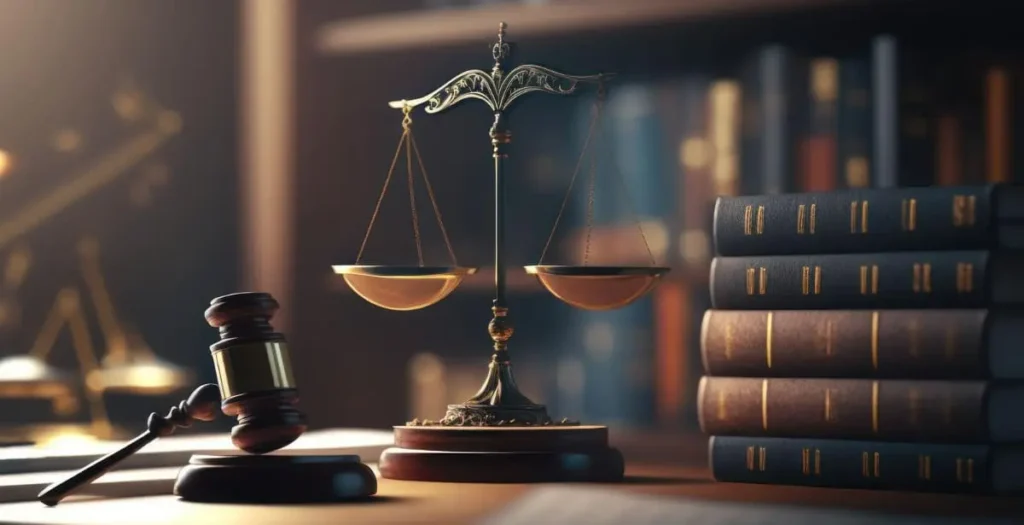Introduction to the quote by Thomas Hobbes
Thomas Hobbes, a philosopher whose ideas have shaped political thought for centuries, once stated, “It is not wisdom but authority that makes a law.” This powerful declaration raises essential questions about laws’laws’ nature and foundation. Are laws indeed just because they are enforced? Or do we risk following blind authority without questioning its validity? As we navigate history and contemporary society, this quote invites us to explore the intricate relationship between authority and justice. Let’s dive into what it means when power dictates legality and why wisdom should be at the heart of our legal systems.
It is not wisdom but authority that makes a law. t – tymoff

Thomas Hobbes’ assertion, It Is Not Wisdom But Authority That Makes A Law. T – Tymoff, challenges our understanding of justice. It emphasizes that laws often stem from the power wielded by those in charge rather than moral reasoning or ethical considerations.
Authority can enforce compliance, but it doesn’t guarantee fairness. Decisions made under the guise of authority often overlook fundamental human rights and societal needs.
The consequences are significant. When individuals defer to authority without scrutiny, they risk perpetuating injustice. This blind obedience poses risks to democratic values and individual freedoms.
Critical thinking becomes essential in this landscape. Questioning established norms encourages a more just legal framework, where wisdom guides laws instead of mere dominance.
Engagement with legal systems must involve evaluating both authority and the underlying principles driving legislation for true equity to flourish.
Explanation of the quote and its meaning

Thomas Hobbes’ assertion, It Is Not Wisdom But Authority That Makes A Law. T – Tymoff emphasizes the distinction between knowledge and power. Wisdom involves understanding complexities, fostering justice, and promoting ethical deliberation. However, laws often stem from those in positions of control.
Authority dictates legal or illegal based on their interpretations or interests. This dynamic can lead to situations where laws are enacted without consideration for morality or fairness.
In many instances, the legitimacy of a law rests more on who creates it than on its intrinsic value. This raises questions about the true purpose of legislation—should it serve the common good or uphold established power structures?
Understanding this quote invites us to reflect deeply on how laws originate and underline the necessity for critical evaluation beyond mere acceptance of authoritative mandates.
The role of authority in creating laws

Authority plays a crucial role in the establishment of laws. This power determines what is deemed acceptable and unacceptable within society. Legislators, judges, and governmental bodies wield authority to create frameworks that govern behavior.
But authority alone does not equate to just law-making. Those in positions of power are often influenced by various factors—political agendas, public opinion, or even personal beliefs. This can lead to legislation that may not reflect justice or fairness.
Moreover, the very nature of authority can breed complacency among citizens. When people accept laws without question simply because they come from an authoritative source, critical examination fades away.
This dynamic highlights an essential aspect: while authority initiates laws, it must be complemented by ethical considerations and societal values for those laws to hold meaning and relevance in everyday life.
The dangers of unthinkingly following authority in law-making

Unthinkingly following authority in law-making can lead to devastating consequences. History is replete with examples where laws, rooted not in wisdom but in power, have marginalized entire communities.
When citizens surrender their critical faculties, they risk endorsing legislation that may infringe on fundamental human rights. This unquestioned obedience fosters a culture of compliance rather than one of justice.
Moreover, it undermines the very foundation of democracy. Laws should reflect shared values and ethical principles—not merely the whims or agendas of those in power.
Without scrutiny, we allow leaders to shape society according to their interests rather than collective well-being. Such dynamics create an environment ripe for injustice and inequality.
The potential for exploitation increases when individuals relinquish their responsibility to question and evaluate laws critically. Actual progress requires active engagement from all members of society in shaping fair legislation.
Examples from history where authority has led to unjust laws
Throughout history, authority has often wielded power to enforce unjust laws. The Jim Crow laws in the United States serve as a stark example. These statutes, rooted in racial discrimination, were legitimized by those in power yet profoundly oppressed countless individuals.
Nazi Germany also illustrates this grim reality. Under Hitler’s regime, authoritarian rule led to horrific laws targeting Jews and other minorities. Such legislation was derived from an abuse of authority rather than moral or ethical wisdom.
In apartheid South Africa, oppressive laws enforced racial segregation with chilling efficiency. Those questioning these legal structures faced severe consequences, highlighting the dangers of unchallenged authority.
These instances remind us that when law is dictated solely by authority without critical examination, it can lead to societal harm and injustice for many vulnerable groups.
The importance of critical thinking and questioning authority in creating fair laws
Critical thinking is essential in law-making. When individuals question authority, they challenge the status quo. This process can illuminate flaws within existing laws.
Blind obedience often leads to stagnation. Laws created without scrutiny may fail to serve justice or reflect societal values. It’s crucial for citizens and lawmakers alike to engage in meaningful dialogue.
Questioning authority fosters accountability. Leaders must justify their decisions, ensuring that laws are grounded in ethics and reason, not merely reflections of power.
Moreover, diverse perspectives enrich discussions surrounding legislation. Different viewpoints can highlight potential biases or oversights that might otherwise go unnoticed.
Encouraging this mindset nurtures a more informed citizenry, ultimately leading to fairer laws that uphold human rights and dignity for all members of society.
Conclusion: Wisdom should be the foundation of law, not just blind obedience to authority
Wisdom should be the cornerstone of our legal system. Laws crafted with thoughtful consideration often yield fairness and justice. When wisdom guides legislation, it reflects collective values and promotes social harmony.
Blind obedience to authority can lead to a slippery slope. History shows such submission has birthed unjust laws, causing harm instead of protection.
Critical thinking is essential in evaluating the motives behind rules and regulations. Citizens must question, analyze, and engage with the systems that govern them.
Only by prioritizing wisdom over mere authority can we ensure laws serve humanity rather than oppress it. A society thrives on informed discussions where every voice matters in shaping just outcomes for all individuals involved.
FAQs
The interplay between authority and wisdom in law-making raises crucial questions about the foundations of our legal systems. Thomas Hobbes’s quote, It Is Not Wisdom But Authority That Makes A Law. T – Tymoff reminds us of this delicate balance. While authority is essential for establishing order, it should never override the principles of justice and fairness.
When laws are simply products of power rather than reasoned thought, society risks falling into patterns of injustice. History has repeatedly shown us how blind obedience to authority can lead to oppressive regimes and unjust legislation. Critical thinking must be at the forefront when evaluating laws; otherwise, we may find ourselves upholding outdated or harmful practices.
Legislators should be guided by wisdom rooted in ethical considerations. Laws must evolve from thoughtful discourse rather than mere enforcement by those in power. A society thrives when individuals question and challenge authorities, ensuring justice prevails over tyranny.
What does Hobbes mean by saying that it’s authority that makes a law?
Hobbes believes that the establishment of laws stems from authoritative figures who impose rules on society instead of moral or wise reasoning guiding their creation.
Why is critical thinking important in law-making?
Critical thinking allows citizens to assess whether laws serve justice or uphold power dynamics. It encourages questioning norms and advocating for change where necessary.
Can you give examples where authority led to unjust laws?
Historically, many authoritarian regimes have enacted discriminatory laws based on race or political beliefs—such as apartheid in South Africa or Jim Crow Laws in America—which exemplify how unchecked authority can produce harmfully unjust outcomes.
How can I advocate for fairer laws?
Engage with your community through discussions, attend town hall meetings, support advocacy groups focused on social justice issues, and encourage others to think critically about existing laws.
Why should wisdom be prioritized over mere obedience to authority?
Prioritizing wisdom ensures that laws reflect ethical standards that promote fairness and equality rather than maintaining control through fear or oppression.




Pingback: pacers vs boston celtics match player stats 2024 - rankingdream.com